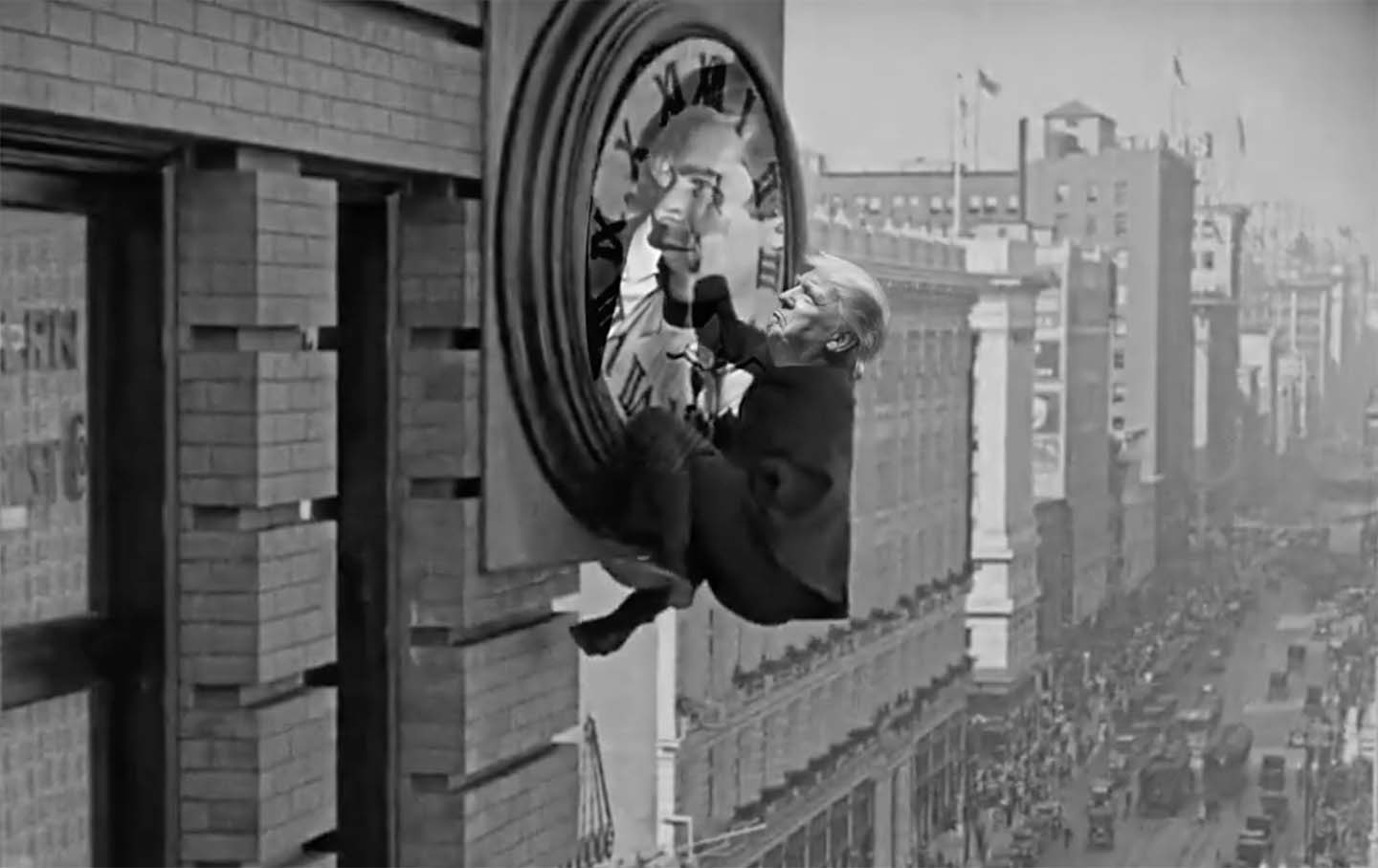That Time Bernie Sanders Told America: “I Am Proud to Say That Henry Kissinger Is Not My Friend”
In a remarkable 2016 debate with Hillary Clinton, Sanders rejected the establishment consensus and declared, “I will not take advice from Henry Kissinger.”

In his brilliant 2001 book, The Trial of Henry Kissinger, Christopher Hitchens argued that the former national security adviser and secretary of state for Presidents Richard Nixon and Gerald Ford should be prosecuted “for war crimes, for crimes against humanity, and for offenses against common or customary or international law, including conspiracy to commit murder, kidnap, and torture.” The trial never happened. Instead, Kissinger lived to the ripe old age of 100. His passing on Wednesday was marked with predictably tone-deaf headlines that declared “Henry Kissinger, America’s most influential diplomat, dies at 100” (Politico), “Henry Kissinger Is Dead at 100; Shaped Nation’s Cold War History” (The New York Times) and “Henry Kissinger, Who Helped Forge U.S. Foreign Policy During Vietnam and Cold War, Dies at 100” (The Wall Street Journal).
The Journal’s subhead actually described Kissinger as “a hero to war-weary Americans”—an audacious way to portray a man who was widely understood to have helped prolong the Vietnam War for political gain.
But, while the former secretary of state escaped a formal trial, he was relentlessly prosecuted—and convicted—in the court of public opinion.
Recalling the role the former secretary of state played in orchestrating the secret bombing of Cambodia during the Vietnam War era, globe-trotting chef and documentarian Anthony Bourdain famously explained in his 2001 book, A Cook’s Tour:
Once you’ve been to Cambodia, you’ll never stop wanting to beat Henry Kissinger to death with your bare hands. You will never again be able to open a newspaper and read about that treacherous, prevaricating, murderous scumbag sitting down for a nice chat with Charlie Rose or attending some black-tie affair for a new glossy magazine without choking. Witness what Henry did in Cambodia—the fruits of his genius for statesmanship—and you will never understand why he’s not sitting in the dock at The Hague next to [Serbian strongman] Slobodan Milošević.
Henry Kissinger is dead
Bourdain’s visceral assessment of Kissinger was inspired. It spoke to the popular rejection of Kissinger as any kind of hero. But in the highest circles of our politics, the former secretary of state was still spoken of in respectful terms.
Until a winter night in 2016, when Democratic presidential candidate Hillary Clinton, a former secretary of state who had long been closely aligned with the country’s foreign-policy establishment—and who proudly touted her bond with Kissinger—faced Vermont Senator Bernie Sanders, a frequent critic of that establishment open and secret wars.
In one of the most remarkable exchanges in the modern history of presidential politics, Sanders asked, toward the close of the foreign policy section of the debate, if he might add a brief final word. “Where the secretary and I have a very profound difference, in the last debate and I believe in her book…she talked about getting the approval or the support or the mentoring of Henry Kissinger. Now, I find it rather amazing, because I happen to believe that Henry Kissinger was one of the most destructive secretaries of state in the modern history of this country,” said the senator, to loud applause.
“I am proud to say that Henry Kissinger is not my friend,” continued Sanders.
I will not take advice from Henry Kissinger. And in fact, Kissinger’s actions in Cambodia, when the United States bombed that country, overthrew Prince Sihanouk, created the instability for Pol Pot and the Khmer Rouge to come in, who then butchered some 3 million innocent people, one of the worst genocides in the history of the world. So count me in as somebody who will not be listening to Henry Kissinger.
Clinton countered with a dig at Sanders. “Well,” she said, “I know journalists have asked who you do listen to on foreign policy, and we have yet to know who that is.”
“Well, it ain’t Henry Kissinger. That’s for sure,” replied Sanders.
“That’s fine. That’s fine,” said Clinton.
You know, I listen to a wide variety of voices that have expertise in various areas. I think it is fair to say, whatever the complaints that you want to make about him are, that with respect to China, one of the most challenging relationships we have, his opening up China and his ongoing relationships with the leaders of China is an incredibly useful relationship for the United States of America. So if we want to pick and choose—and I certainly do—people I listen to, people I don’t listen to, people I listen to for certain areas, then I think we have to be fair and look at the entire world, because it’s a big, complicated world out there.
“It is,” injected Sanders.
Clinton was now scrambling to put Kissinger in perspective. “And, yes,” she said, “people we may disagree with on a number of things may have some insight, may have some relationships that are important for the president to understand in order to best protect the United States.”
Popular
“swipe left below to view more authors”Swipe →Sanders was having none of that explanation, suggesting that his historical perspective was “very different”:
Kissinger was one of those people during the Vietnam era who talked about the domino theory. Not everybody remembers that. You do. I do. The domino theory, you know, if Vietnam goes, China, da, da, da, da, da, da, da. That’s what he talked about, the great threat of China. And then, after the war, this is the guy who, in fact, yes, you’re right, he opened up relations with China, and now pushed various type of trade agreements, resulting in American workers losing their jobs as corporations moved to China. The terrible, authoritarian, Communist dictatorship he warned us about, now he’s urging companies to shut down and move to China. Not my kind of guy.
Watch the video of the historic exchange below.
More from The Nation

Why Is Washington DC Blanketed in Ads for the Defense Industry? Why Is Washington DC Blanketed in Ads for the Defense Industry?
In the metro and in public spaces, its hard to miss all the advertisements hawking the lethal wares of military contractors, tech companies, and the like.
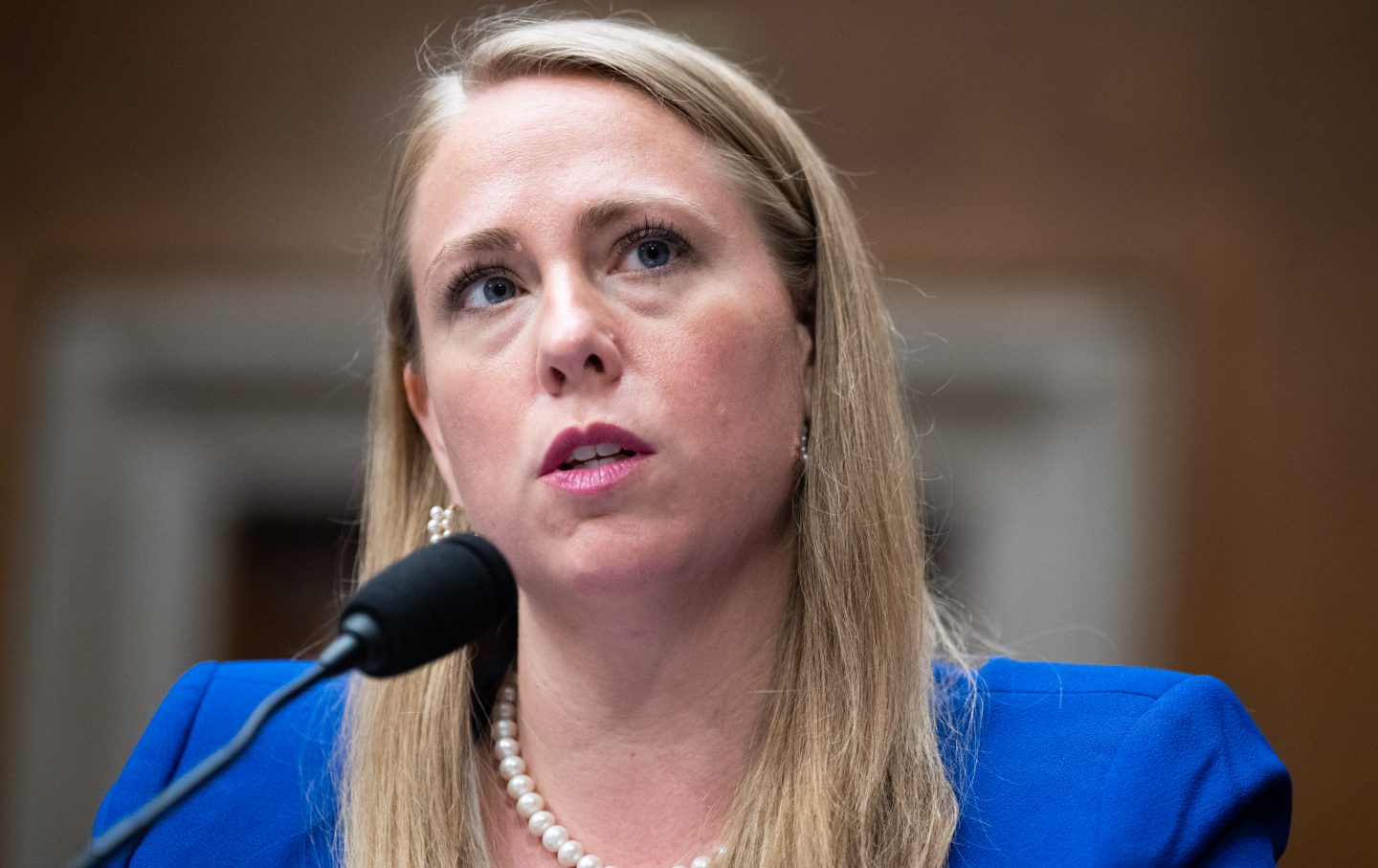
The EEOC Is on the Verge of Making It Harder for Workers to Fight Harassment The EEOC Is on the Verge of Making It Harder for Workers to Fight Harassment
The agency is planning to delete a document that provides up-to-date guidance on the protections workers have in this complex and rapidly changing area of law.
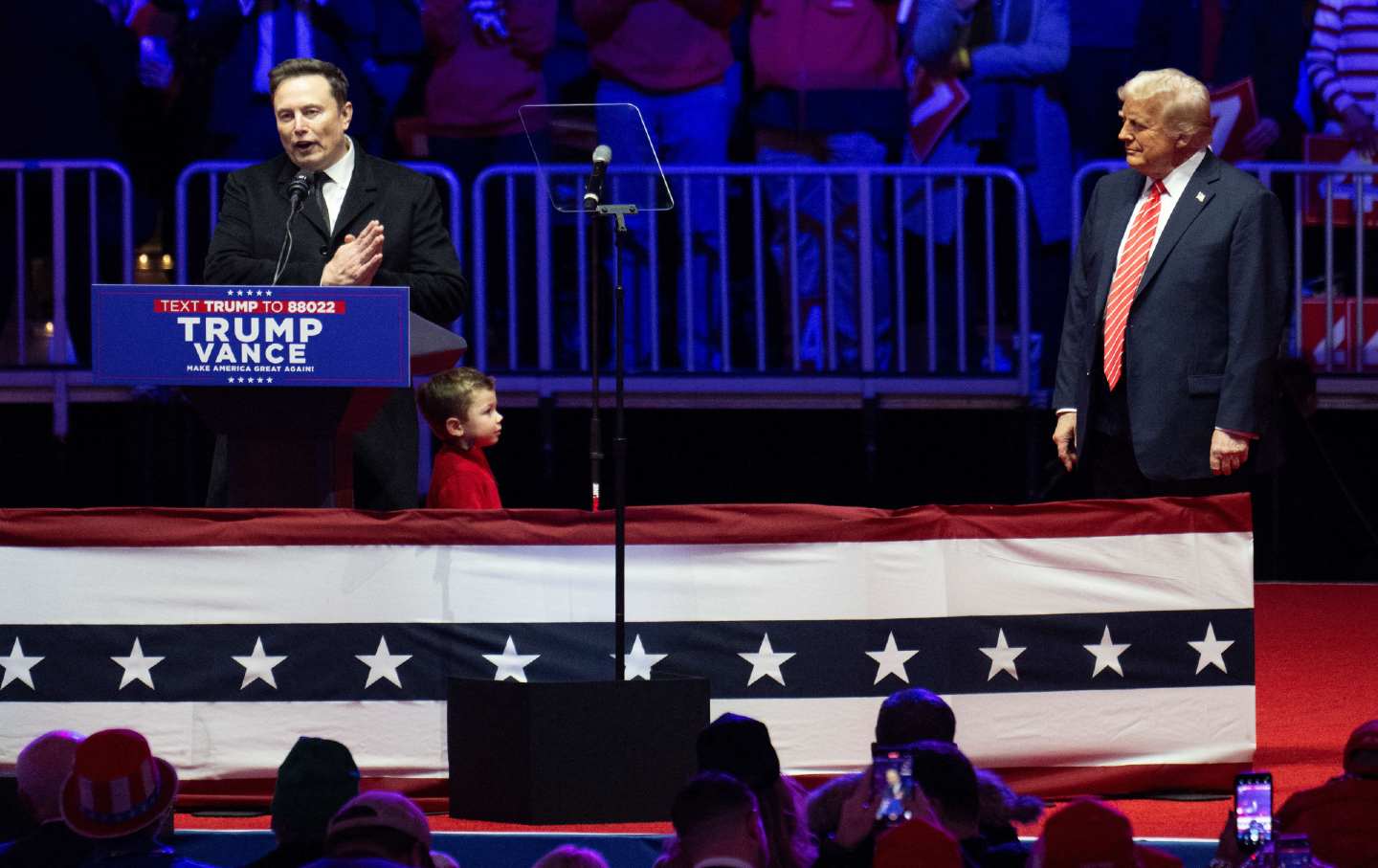
One Year Into Trump 2.0, Elon Musk Is Still Poised to Be Kingmaker One Year Into Trump 2.0, Elon Musk Is Still Poised to Be Kingmaker
The neofascist tech oligarch was cast out of Trump’s inner circle, but his money and influence are still omnipresent.
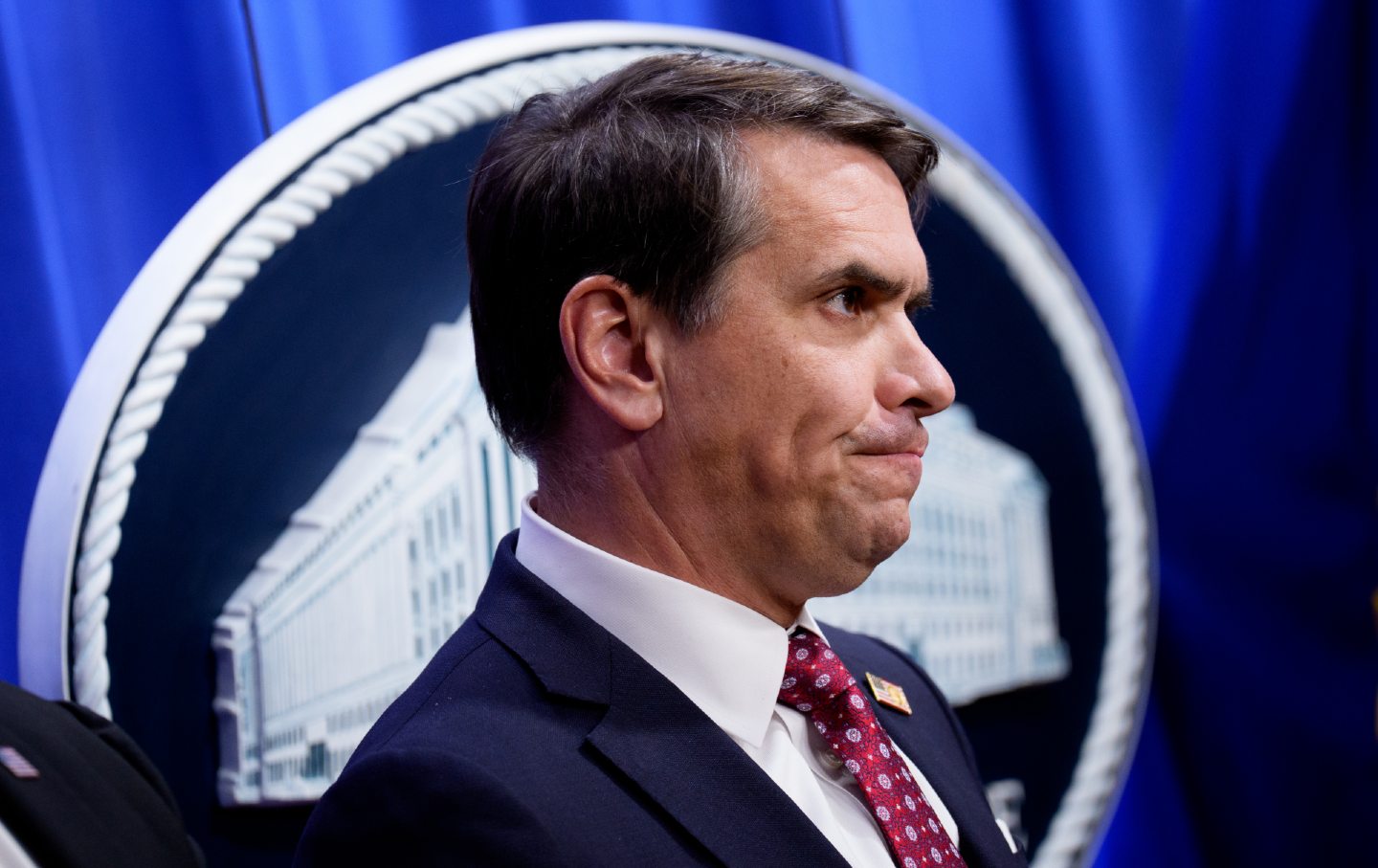
A Trump Administration Official Says It Won’t Investigate the Killing of Renee Good A Trump Administration Official Says It Won’t Investigate the Killing of Renee Good
Deputy Attorney General Todd Blanche makes clear that the Department of Justice won’t look into the death of Renee Good—but that won’t stop Minnesota from investigating.
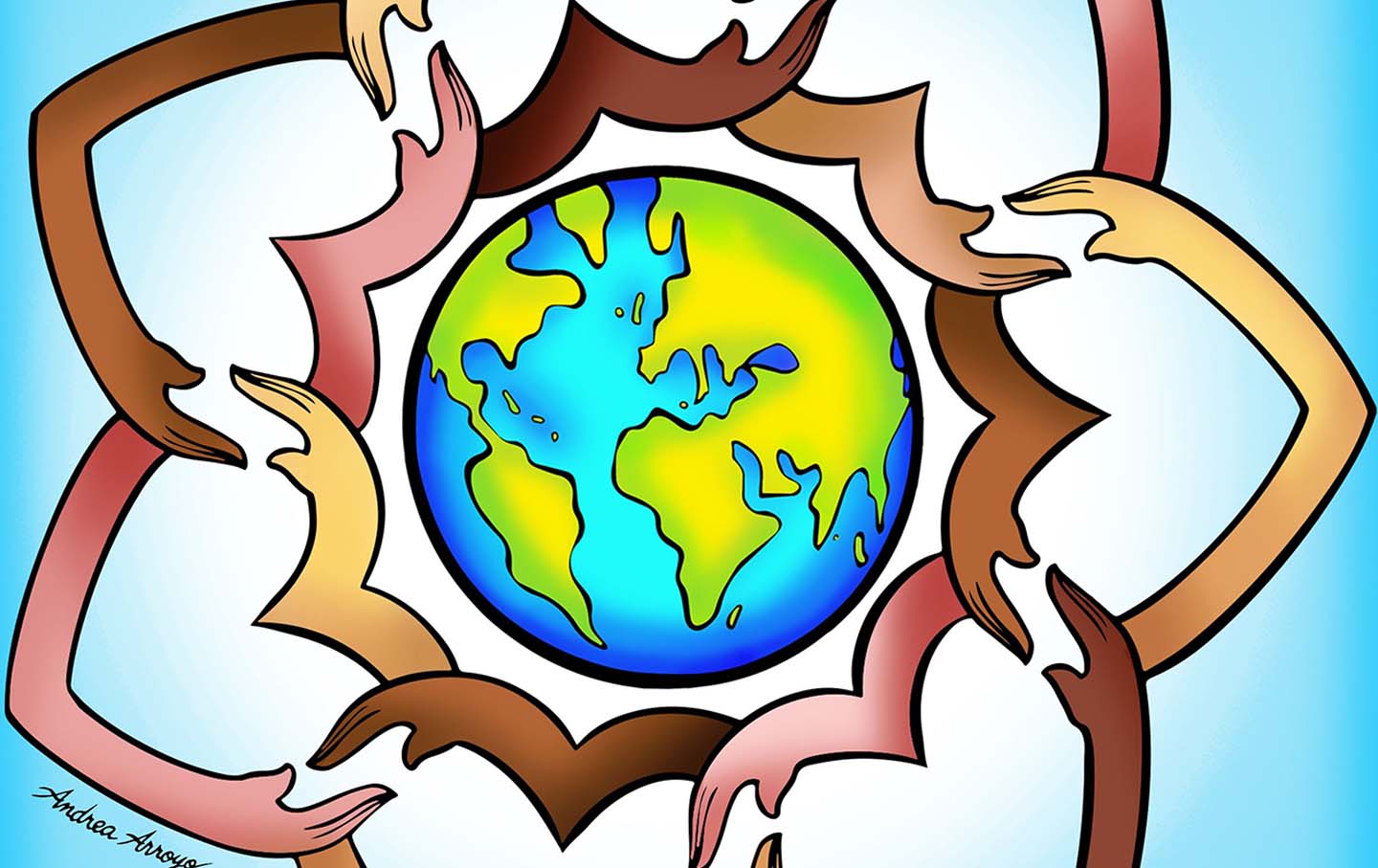
Martin Luther King Jr.’s Dream: Love Against Racism Martin Luther King Jr.’s Dream: Love Against Racism
As Dr. King reminded us, “Hate cannot drive out hate; only love can do that.” His words continue to call us toward justice, compassion, and the power of love to confront racism.

